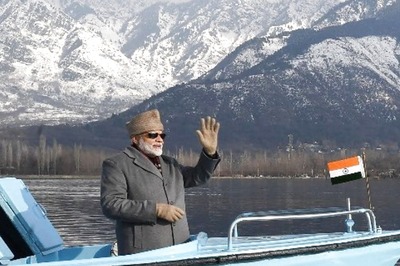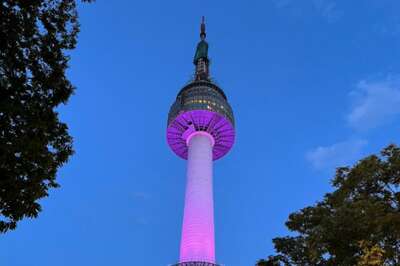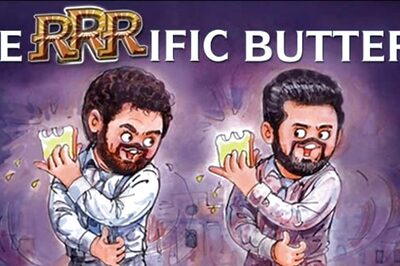
views
IIFL has come out with a report on Union Budget Preview 2011-12.
Union Budget Preview 2011-12- Balancing between growth and inflation:
The Union Budget 2011-12 will revolve around fiscal consolidation, inflation control, administrative checks and inclusive growth. We do not anticipate any major roll-back of stimulus (indirect taxes) since some concerns lurk about pace of economic growth in 2011. Further, given the upcoming elections in key states, the Government will, in all likelihood, follow certain populist measures. Notwithstanding fiscal pressures, we believe the Budget presents a golden opportunity to the incumbent Government to send a strong signal on the policy front. All-in-all, the Budget is expected to be a mixed one with a marginal positive bias.
Direct tax: Raising of personal income tax slab for lower income group:
Inflation pressure is resulting in low income groups spending a bigger share of their wallet on food and other basic necessities. The Government will look to appease this class of people, especially with key states going into elections soon. We expect an increase in personal income tax exemption limit, for the lower income bracket from Rs 160,000 to Rs 175,000-180,000. The Government can afford this largesse given last year’s buoyancy in direct tax collection. Corporate taxes, on the other hand, are likely to compensate for the rise in slab in personal income tax. This would mean that the industry demand for lowering the tax rate, removing the surcharge or reducing MAT rate will not be met and rates will be left unchanged.
Indirect tax: No major change; tweaks in some components:
The Government had partially rolled back excise duty last year (it had cut duties as a stimulus a couple of years ago), but is unlikely to do so in the upcoming Budget, especially when concerns loom about a possible percentage point drop in GDP growth and when industry is in investment mode. Roll-backs in excise would be selective in our opinion. We see excise duty hike specific to diesel cars and SUVs, on grounds that it provides subsidy to an audience not needing it. Similarly, excise duty may be hiked for tobacco. To tackle rising inflation, we expect excise duties on petroleum products or customs duty on crude and petrochemicals to be cut. Certain countervailing duties may also be cut to lower value of imported items.
There is a view that service tax rate may be hiked to eventually converge with GST in future. However, in our view, a better approach would be to widen the scope of the tax to include all services (with some exemptions) while keeping rates unchanged this year. The Budget may not be able to give a detailed roadmap on GST, given opposition from states.
Non-tax revenue: Amnesty scheme for black money holders:
The Budget will possibly see announcement of an amnesty scheme to bring back to India some of the black money residing in foreign banks. While such schemes raise a moral issue since they disadvantage honest tax payers, but they will certainly help the fiscal position greatly. Even if the minister gives it a miss, there is a strong possibility that the scheme is introduced during the course of the year and add to revenues in 2012.
Social sector spending to witness healthy rise in allocations:
We believe the Government will focus on strengthening existing schemes rather than introducing new ones. Flagship projects like Bharat Nirman, Rajiv Awas Yojana, Midday Meal scheme and Right to Education will see good increase in allocation. Healthcare is another area where expenditure will likely rise. On the NREGA front, the focus would be on preventing inefficiencies and leaks in the system rather than big rise in allocation.
Subsidy burden to remain elevated:
It can be expected that the subsidy on food and fertilisers will continue to mount. On the oil subsidy front, we see the Government tackling this issue by lowering duties rather than hiking subsidies substantially. The two percent subvention scheme on export credit is scheduled to expire on March 31, 2011. The subvention will either not be extended or will see a lower rate.
Strong agriculture focus:
Ineffective public distribution is a major reason for food inflation. The Budget is likely to allocate funds for effective warehousing and distribution of agricultural products. Administrative controls are also expected to be put in place to check on hoarding of any produce. Common market for agricultural products and reduction in Mandi tax are areas which could be addressed. We also expect allocation for irrigation to rise meaningfully.
Infrastructure issues to be addressed partly:
The Government will partly attempt to resolve funding constraints in infrastructure. Funding problems have resulted in a major slowdown in order flow in the last 6-8 quarters. Capex uptick is a must to sustain the growth rates in GDP. One way to channelize money flow into the power segment, which accounts for a chunk of the infra capex, is to remove withholding tax on overseas investment. There is a case to allow NBFCs and banks to raise tax free infrastructure bonds to ease funding to this sector.
Fiscal deficit: Will amnesty replace the 3G windfall?
The revised estimates for 2011 would reveal a lower fiscal deficit when compared to Budget estimates on account of higher tax revenues last year and windfall 3G auction gains. For 2012, the fiscal deficit could be around 4.7-5 per cent in case the amnesty scheme is Budgeted for and closer to 5.5 per cent, in case of non inclusion of the voluntary disclosure scheme to bring back black money.
We see amnesty scheme, agriculture focus and easing of infra funding issues as the key addressable areas, which could enthuse the equity market. A complete excise duty roll-back by 2 per cent and higher fiscal deficit target of 5.5 per cent would be major negative surprises, in case announced. Jain irrigation, L&T, BGR Energy, Everonn Education, Jindal Saw, SBI, GSK Consumer are our top Budget picks. ITC and Tata Motors could be the top misses from the budget.



















Comments
0 comment